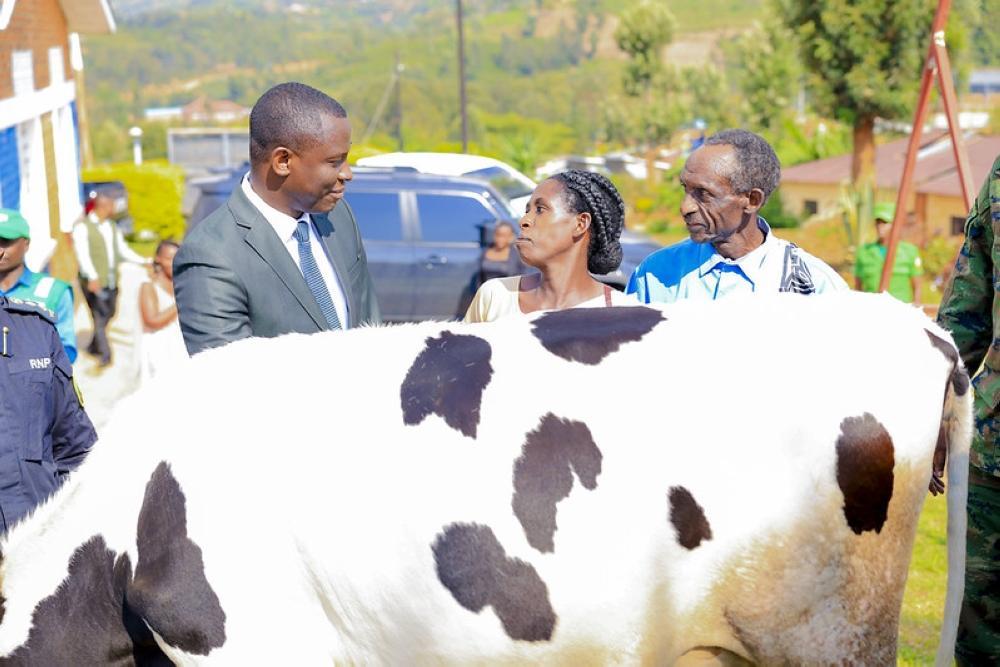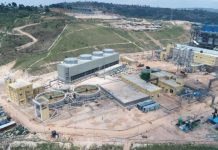Sahr Kpundeh
Africa-Press – Rwanda. In a recent conversation, Rwanda’s Minister of Local Government, Dominique Habimana, reinforced a principle at the heart of Rwanda’s development approach: leaving no one behind. As the world marks the International Day for the Eradication of Poverty, on October 17, this also means prioritizing what matters most—jobs.
Economic growth is essential, and when channelled effectively, it becomes the foundation for productive employment that provides dignity, stability, and a path out of poverty for families and communities. This is the challenge before governments and development partners alike.
Rwanda’s experience illustrates both the progress achieved and the challenge that remains. The country has recorded remarkable economic growth, averaging 8.4 percent between 2022 and 2024, and an annualised 7.8 percent in the first half of 2025 alone. This sustained expansion has helped reduce poverty from 39.8 percent in 2017 to 27.4 percent in 2024, showing what focused economic management and sound policy can deliver.
Building on two decades of economic gains, Rwanda now stands at a pivotal opportunity: scaling job creation to match its growth momentum.
This is why the World Bank Group has made job creation a central priority. Economic growth that generates decent work creates a virtuous cycle, because everything else flows from this foundation. Investments in skills, infrastructure, entrepreneurship, and financial inclusion realize their full potential when they create pathways to productive employment.
Rwanda’s National Strategy for Transformation (NST2) captures this ambition clearly. It targets the creation of 1.25 million productive and decent jobs over the next five years, an average of 250,000 jobs annually.
Achieving this goal will require nothing short of a transformation in how the economy generates employment, particularly given that many existing jobs remain informal or concentrated in microenterprises. The challenge will also intensify as more young Rwandans enter the working age.
Three priorities stand out in Rwanda’s strategy to scale job creation.
First, supporting workers to transition from low-productivity agriculture into higher-value industries and services. This means identifying and supporting sectors with strong job-creation potential, including tourism, food processing, textiles, pharmaceuticals, and logistics services. It also means enabling investment through better access to capital, reliable digital infrastructure, and transport networks that connect producers to markets.
Second, human capital development needs to continue evolving to match the pace of economic change. The traditional path of education followed by employment no longer fits today’s dynamic labour markets. Rwanda has already taken important steps through the expansion of Technical and Vocational Education and Training (TVET), apprenticeships, and reskilling programs aligned with market needs. The World Bank’s Priority Skills for Growth initiatives, with $470 million in recent operations, are helping to build a skilled workforce ready for emerging opportunities.
Third, catalysing private sector growth as the engine of job creation. Governments create enabling environments and businesses leverage this to create jobs at scale. This requires policies that foster private sector growth: access to affordable finance, reduced regulatory barriers, infrastructure that lowers the cost of doing business, and technology that increases productivity.
Agriculture will continue to play a central role in Rwanda’s employment landscape. The World Bank’s AgriConnect Initiative offers a clear path to prioritize investment in high-impact value chains that create quality jobs while strengthening food security. Moving up the agricultural value chain, from raw production to processing, packaging, and marketing, can generate large-scale employment while raising incomes for smallholder farmers.
For women and young people, targeted support is essential. Community-based employment programmes in agriculture, infrastructure, and environmental management can provide immediate work opportunities and build practical experience. At the same time, business development services tailored to women entrepreneurs can help overcome barriers to finance and markets, unlocking their full potential as job creators.
As Rwanda continues to implement its development agenda, jobs remain at the heart of every policy, every investment, and every reform. This is what citizen-centered development truly means: ensuring that economic progress results in decent work for all. When a young graduate, a farmer, or an entrepreneur finds meaningful work, the benefits ripple through families and communities, building hope and shared prosperity, leaving no one behind.
The World Bank is committed to supporting Rwanda in this transformative agenda. Economic growth that creates jobs completes the development puzzle. Poverty reduction powered by pathways to dignified work becomes sustainable and self-reinforcing. The International Day for the Eradication of Poverty reminds us that ending poverty is achievable when we recognize that jobs are a pillar on which sustainable development rests.
The World Bank is currently preparing a new Country Partnership Framework for Rwanda. We look forward to insights on how best to fully leverage Rwanda’s USD $ 3.3 billion portfolio to support job creation and advance the government’s broader development priorities.
Source: The New Times
For More News And Analysis About Rwanda Follow Africa-Press






